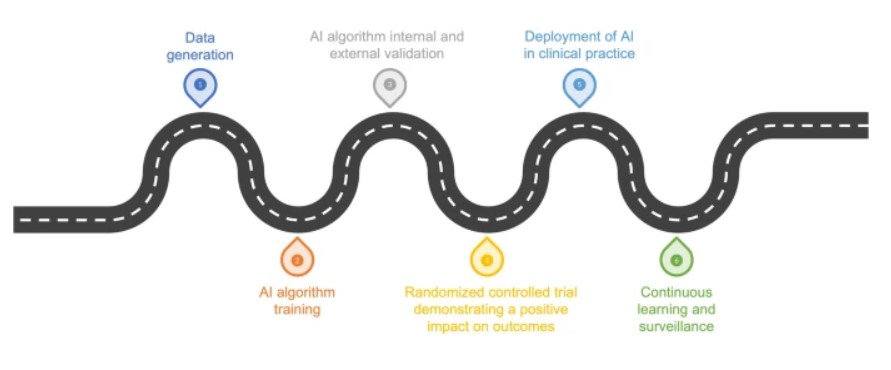Artificial intelligence (AI) is making a big impact on heart health, offering better ways to predict risks, analyze medical data, and create personalized treatments. A recent review in the Journal of Cardiovascular Translational Research discusses the progress, challenges, and strategies for using AI in cardiology.

Several steps need to be followed and challenges overcome in order to successfully integrate AI in clinical practice and ensure its longevity
Heart diseases are a major cause of death worldwide and create significant healthcare costs. AI can help doctors and researchers find new solutions for better patient care. Two types of AI, supervised and unsupervised learning, are already being used to develop helpful tools for heart health.
Supervised learning teaches AI using labeled information, which helps predict heart disease risks, interpret diagnostic images, and find patterns in patient data. Unsupervised learning allows AI to discover hidden connections in unlabeled data, helping researchers identify new heart disease types and create targeted treatments.
Despite the progress, AI in cardiology faces some challenges, such as biased data, inconsistent reporting, limited data access, and concerns about trust and responsibility in case of errors. To make the most of AI’s potential in improving heart healthcare, these issues must be addressed.
The review suggests strategies for integrating AI into cardiology, such as encouraging collaboration, creating clear reporting guidelines, protecting data privacy, and promoting continuous learning.
In conclusion, AI can make heart healthcare more accurate, efficient, and personalized. By addressing challenges and using AI responsibly, we can improve patient care and drive innovation in heart health research.